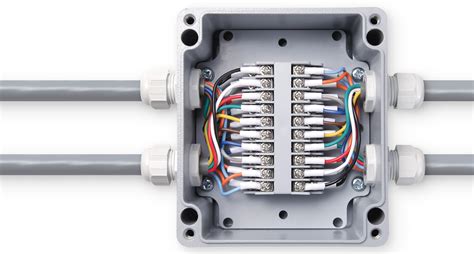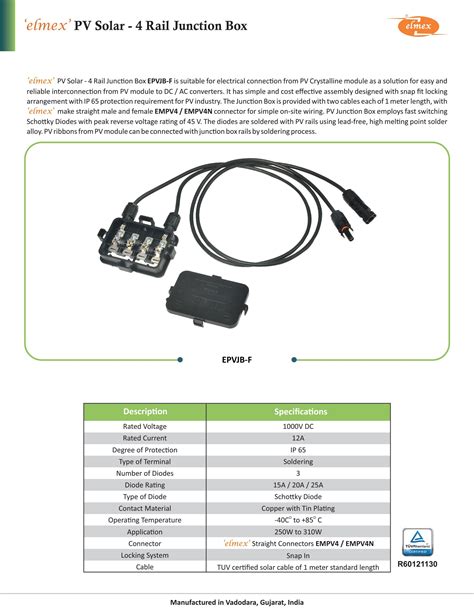difference between enclosure and junction box What is the difference between an enclosure and a junction box? Although there are many differences between enclosures and junction boxes, the biggest one is size. Junction boxes are generally smaller like 5”x5” while . Mild steel sheet. 18 or 20 or 22 gauge. About $30 for a 4'*4' piece. 22 gauge for new Hondas. 18 for old vw pans. 20 gauge for old vw bodies. It's a personal preference. 22 is way easier to bend than 18, but 18 will take more weld without blowing through.
0 · junction box terminals
1 · junction box catalogue
2 · industrial grade outdoor enclosure box
3 · explosion proof junction box
4 · explosion proof electrical junction box
5 · electrical enclosure junction box
6 · appleton explosion proof junction box
7 · 24x24 pvc junction box
Have you ever noticed a star adorning the exterior of a house and wondered about its significance? These stars are seldom the same, often seen in various colors, sizes, and materials — they are not just decorative elements; they carry a wealth of history and meaning.
junction box terminals
Junction box = box with no components mounted in it (i.e. all connections are wirenuts or split bolts). Most conductors are long enough to be pulled from the box (i.e. the 6" length required at devices) What is the difference between an enclosure and a junction box? Although there are many differences between enclosures and junction boxes, the biggest one is size. Junction boxes are generally smaller like 5”x5” while .
Both junction boxes and terminal boxes play vital roles in electrical installations, protecting and housing electrical connections. Understanding their unique characteristics and suitable applications is crucial for making the right choice .
metal sheet stamped parts
What is the difference between a box and an enclosure? Though often used interchangeably, a “box” and an “enclosure” can differ in their intended applications and protective features. A box is generally a more basic container .Discover the key differences between terminal and junction boxes, their functionalities, materials, and a head-to-head comparison. Learn to tell them apart easily. What is the difference between an electrical box and a junction box? The terms "electrical box" and "junction box" are often used interchangeably, but they can have slightly different meanings depending on .In this article, we’ll look at the major differences between a Terminal and a junction box. Continue reading! A junction box, sometimes called a j-box, is a protective box that connects all of the power supply cables. These boxes are .
Electrical boxes come in many styles, each designed for specific purposes. Understanding these differences will help you choose the right box for your project. New work boxes are used in new construction or when walls are . Vorlane defines junction boxes as enclosures for protecting and safeguarding electrical connections. They are also suitable for organizing big loops of wires in a place. A junction box also combines different cables when .
Junction box = box with no components mounted in it (i.e. all connections are wirenuts or split bolts). Most conductors are long enough to be pulled from the box (i.e. the 6" length required at devices) What’s the difference between outlet boxes and junction boxes? An outlet box and a junction box can be the same thing. A junction box is a standard electrical box that encloses wire splices and contains no device (like a receptacle).
What is the difference between an enclosure and a junction box? Although there are many differences between enclosures and junction boxes, the biggest one is size. Junction boxes are generally smaller like 5”x5” while enclosures can get fairly large.Both junction boxes and terminal boxes play vital roles in electrical installations, protecting and housing electrical connections. Understanding their unique characteristics and suitable applications is crucial for making the right choice for your specific wiring needs. What is the difference between a box and an enclosure? Though often used interchangeably, a “box” and an “enclosure” can differ in their intended applications and protective features. A box is generally a more basic container and may offer less protective features than an enclosure does.Discover the key differences between terminal and junction boxes, their functionalities, materials, and a head-to-head comparison. Learn to tell them apart easily.
What is the difference between an electrical box and a junction box? The terms "electrical box" and "junction box" are often used interchangeably, but they can have slightly different meanings depending on the context.In this article, we’ll look at the major differences between a Terminal and a junction box. Continue reading! A junction box, sometimes called a j-box, is a protective box that connects all of the power supply cables. These boxes are also affixed to the roof, the wall, and the concrete plaster.
Electrical boxes come in many styles, each designed for specific purposes. Understanding these differences will help you choose the right box for your project. New work boxes are used in new construction or when walls are opened up for renovations. These are designed to be installed before drywall or other wall coverings are in place.
Vorlane defines junction boxes as enclosures for protecting and safeguarding electrical connections. They are also suitable for organizing big loops of wires in a place. A junction box also combines different cables when needed.
Junction box = box with no components mounted in it (i.e. all connections are wirenuts or split bolts). Most conductors are long enough to be pulled from the box (i.e. the 6" length required at devices) What’s the difference between outlet boxes and junction boxes? An outlet box and a junction box can be the same thing. A junction box is a standard electrical box that encloses wire splices and contains no device (like a receptacle). What is the difference between an enclosure and a junction box? Although there are many differences between enclosures and junction boxes, the biggest one is size. Junction boxes are generally smaller like 5”x5” while enclosures can get fairly large.Both junction boxes and terminal boxes play vital roles in electrical installations, protecting and housing electrical connections. Understanding their unique characteristics and suitable applications is crucial for making the right choice for your specific wiring needs.

What is the difference between a box and an enclosure? Though often used interchangeably, a “box” and an “enclosure” can differ in their intended applications and protective features. A box is generally a more basic container and may offer less protective features than an enclosure does.Discover the key differences between terminal and junction boxes, their functionalities, materials, and a head-to-head comparison. Learn to tell them apart easily. What is the difference between an electrical box and a junction box? The terms "electrical box" and "junction box" are often used interchangeably, but they can have slightly different meanings depending on the context.
In this article, we’ll look at the major differences between a Terminal and a junction box. Continue reading! A junction box, sometimes called a j-box, is a protective box that connects all of the power supply cables. These boxes are also affixed to the roof, the wall, and the concrete plaster. Electrical boxes come in many styles, each designed for specific purposes. Understanding these differences will help you choose the right box for your project. New work boxes are used in new construction or when walls are opened up for renovations. These are designed to be installed before drywall or other wall coverings are in place.

metal sheet metal fabrication in mesa az
$8.63
difference between enclosure and junction box|junction box catalogue